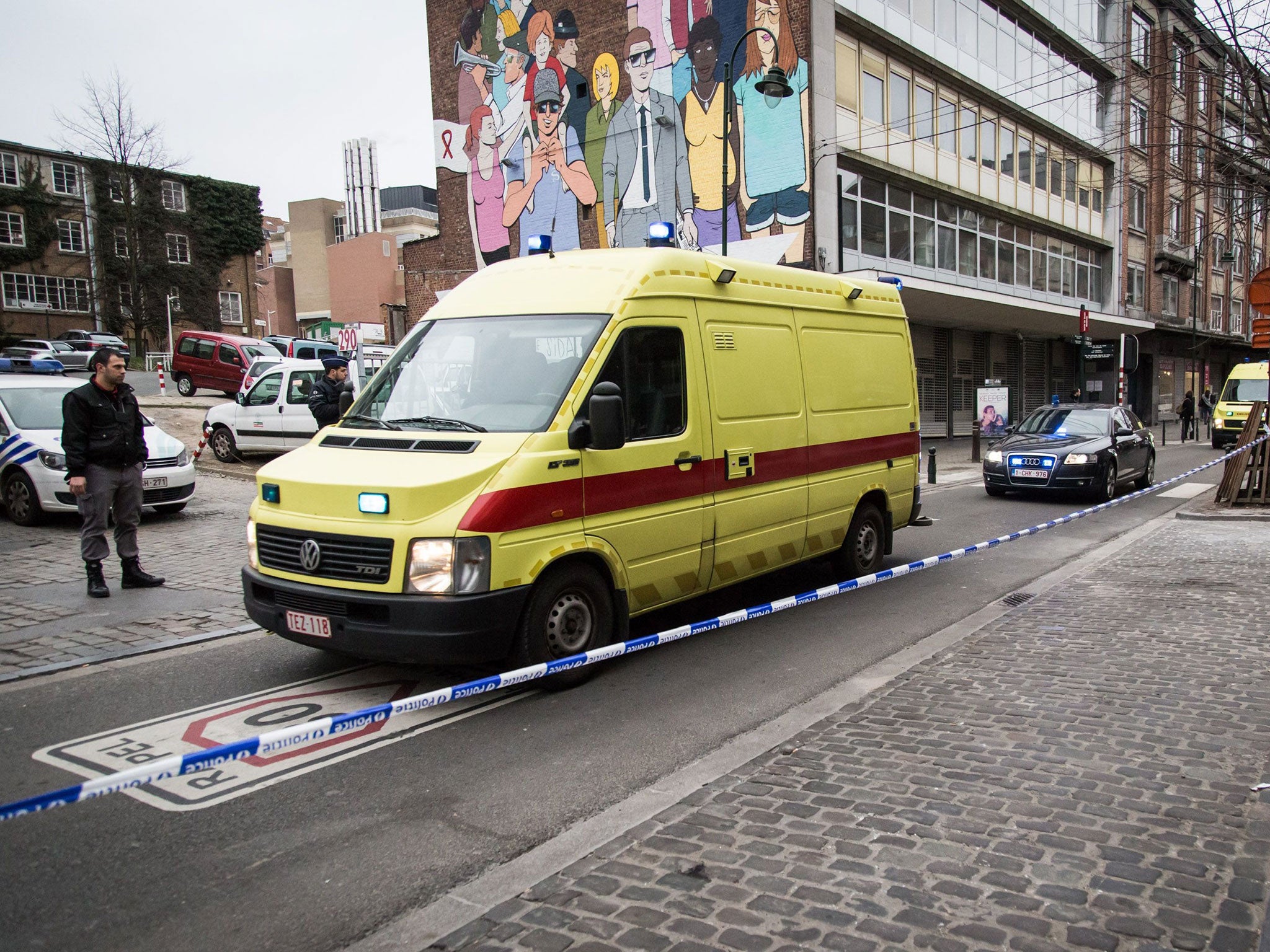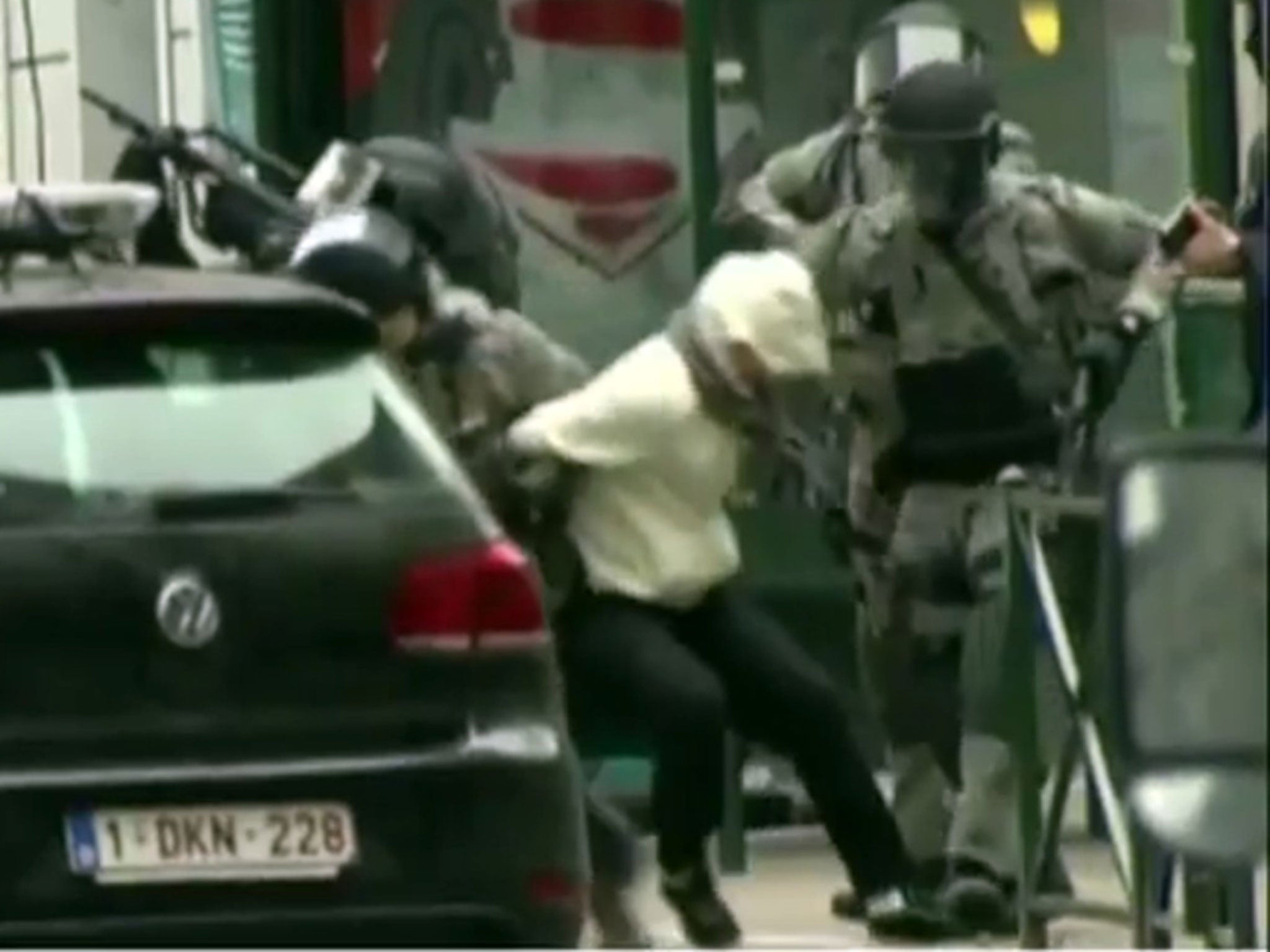Paris terror attacks suspect Salah Abdeslam discharged from hospital to face questioning and fast-track extradition to France
The key suspect in the Paris terror attacks was arrested in a raid in Brussels

Your support helps us to tell the story
From reproductive rights to climate change to Big Tech, The Independent is on the ground when the story is developing. Whether it's investigating the financials of Elon Musk's pro-Trump PAC or producing our latest documentary, 'The A Word', which shines a light on the American women fighting for reproductive rights, we know how important it is to parse out the facts from the messaging.
At such a critical moment in US history, we need reporters on the ground. Your donation allows us to keep sending journalists to speak to both sides of the story.
The Independent is trusted by Americans across the entire political spectrum. And unlike many other quality news outlets, we choose not to lock Americans out of our reporting and analysis with paywalls. We believe quality journalism should be available to everyone, paid for by those who can afford it.
Your support makes all the difference.Paris terror attack suspect Salah Abdeslam is to be questioned after being discharged from hospital, according to officials.
Abdeslam was being treated in a Brussels hospital after sustaining wounds during his arrest.
The news was announced by Yvan Mayeur, city mayor of Brussels.
“Two suspected terrorists left the St Pierre Hospital,” he wrote on Twitter.
“Congratulations and thank you to all hospital staff and police forces.”
Abdeslam and four other people were caught in the raid in the Molenbeek suburb of Brussels.
Abdeslam will be questioned by the Belgian authorities as France prepares a fast-track extradition case.
Families of victims and survivors want Abdeslam to face justice in France for the November 13 attacks on a rock concert, stadium and cafes, which killed 130 victims and several attackers.
Isis claimed responsibility.
Once doctors consider Abdeslam fit to face questioning, he will be interrogated by Belgian investigators, possibly in the presence of French colleagues.
He may be assisted by his Belgian lawyer, identified by Belgian daily Le Soir as Sven Mary.
French anti-terrorist judges could file an extradition request as early as this weekend with Belgian prosecutors.

Belgian federal prosecutor Eric Van der Sypt said that an investigating magistrate has 24 hours following a detention to issue an arrest warrant, though that deadline can be prolonged for another day.
Then Abdeslam will have to appear before a pretrial court, which will decide whether he stays in jail for up to another month.
"If he starts talking then I presume it will mean he stays longer in Belgium," Van Der Sypt said. But "sooner or later he will be extradited to France," the Belgian prosecutor said.
French and Belgian anti-terrorism prosecutors plan a teleconference call Saturday during which matters including Abdeslam's extradition will be discussed, Belgian Federal Prosecutor's Office spokesman Thierry Werts said.
A 2002 agreement among European Union member states speeds up the extradition process, making it a purely judicial process and removing any political aspect. For especially grave crimes, such as terrorist acts, the procedure goes even faster.
Hollande, speaking Friday next to Belgium's Prime Minister Charles Michel, said in Brussels he was sure "the French judicial authorities will send an extradition request very soon" and that "the Belgian authorities will answer it as favourably as possible, as soon as possible."
The shared French language between France and Belgium will help make the process even smoother. Abdeslam could appeal the extradition, but under the European principle of mutual recognition of judicial decisions, that would only give him a short respite.
Samia Maktouf, a French lawyer for several survivors and relatives of Paris attack victims, is urging immediate extradition. "Apart from his (medical) condition, I don't see what might delay his extradition," she told the Associated Press.
Survivors and victims' families "relief is mingled with bitterness" because some suspects are still on the run and belong to an organized and sprawling network that has yet to be stopped, Maktouf said. "Our young people found death for no reason. Today, their families have empty chairs next to them, they have a phone that doesn't ring any longer," she said.
Abdeslam, 26, is a childhood friend of the suspected ringleader of the attacks. Investigators believe Abdeslam drove a car carrying a group of gunmen who took part in the shootings, rented rooms and shopped for detonators. Most of the Paris attackers died on the night of the attacks, including Abdeslam's brother Brahim, who blew himself up.
After the bloodbath, Salah Abdeslam evaded a dragnet to return to Brussels. He was believed to have slipped through police fingers multiple times despite an international manhunt. At one point, Belgian authorities locked down their capital for several days but failed to find him.
Abdeslam and four other suspects were detained in Friday's raid, including three members of a family that sheltered him. Abdeslam was not armed but did not immediately obey orders when confronted by police, Van der Sypt said.
It was possible he had spent days, weeks or months in the apartment, according to Van der Sypt.
Two other people believed linked to the attacks were still being sought, including fellow Molenbeek resident Mohamed Abrini and a man known under the alias of Soufiane Kayal.
Abdeslam's role in the attacks has never been clearly spelled out. The car he drove was abandoned in northern Paris, and his mobile phone and an explosive vest he may have had were later found in the Paris suburb of Montrouge, raising the possibility that he aborted his mission.
Additional reporting by Associated Press
Join our commenting forum
Join thought-provoking conversations, follow other Independent readers and see their replies
Comments